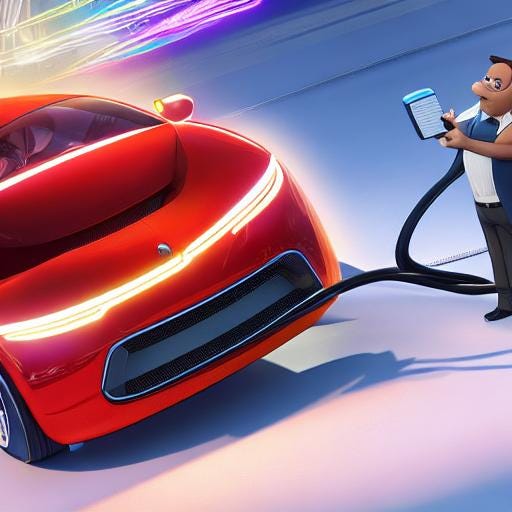How much does it cost to charge an electric vehicle? - FAQs
If you're considering making the switch to an EV or simply want to understand the economics of electric vehicle charging, you're in the right place.
As the world shifts gears towards a more sustainable future, electric vehicles (EVs) are taking the fast lane in the car industry. But one question that often sparks curiosity is, "How much does it cost to charge an electric vehicle?"
Here are the answers to the most frequently asked questions about the cost of charging an EV, both at home and at public charging stations. We'll also explore the different types of charging stations, the average cost of electricity per kilowatt-hour, and how long it typically takes to charge an electric vehicle.
Whether you're an EV owner, prospective buyer, or simply an eco-conscious reader, this post is your roadmap to understanding the financial aspects of EV charging.
1. How much does it cost to charge an electric vehicle at home?
Charging an electric vehicle at home primarily depends on your electricity tariff and the capacity of your vehicle's battery. On average, the cost of electricity in the UK is around 14p per kilowatt-hour (kWh). So, if your vehicle has a battery capacity of 60 kWh, a full charge would cost approximately £8.40. However, this can vary based on your electricity provider and any special tariffs or deals you might have.
2. How much does it cost to charge an electric vehicle at a public charging station?
Public charging stations can have varying costs. Some might offer free charging, especially if they're located at shopping centres or certain businesses. However, on average, rapid charging stations in the UK might charge around 30p per kWh. So, for a 60 kWh battery, a full charge could cost around £18. Again, prices can vary widely based on the provider and location.
3. What are the different types of charging stations?
There are primarily three types of charging stations for electric vehicles:
Slow Chargers (3-6 kW): These are often used for overnight charging and can take 6-12 hours for a full charge.
Fast Chargers (7-22 kW): These can charge an EV in 3-4 hours and are commonly found in car parks or shopping centres.
Rapid Chargers (43-150+ kW): These are the quickest and can charge a vehicle up to 80% in just 20-40 minutes. They're often located along motorways or in areas where quick charging is essential.
4. What is the average cost of electricity per kilowatt-hour?
In the UK, the average cost of electricity is approximately 14p per kWh. However, this can fluctuate based on the region, the provider, and the specific tariff you're on.
5. How long does it take to charge an electric vehicle?
The charging time for an EV depends on the type of charger you're using and the capacity of your vehicle's battery. As mentioned earlier:
Slow Chargers can take 6-12 hours.
Fast Chargers can take 3-4 hours.
Rapid Chargers can charge up to 80% in 20-40 minutes.
6. What factors affect the cost of charging an electric vehicle?
Several factors can influence the cost:
Electricity Rates: The cost per kWh in your area or at a specific charging station.
Battery Capacity: Larger batteries will cost more to charge fully.
Charging Speed: Rapid chargers might have higher rates than slow or fast chargers.
Time of Charging: Some tariffs offer cheaper rates during off-peak hours.
7. Is it cheaper to charge an electric vehicle at home or at a public charging station?
Generally, it's cheaper to charge at home, especially if you're on a favourable electricity tariff. Public charging stations, especially rapid chargers, might have higher rates. However, the convenience and speed of public chargers can sometimes outweigh the cost difference.
Further reading
Charging Your Electric Vehicle at Home: Facts and Figures
Electric vehicles (EVs) are becoming increasingly popular in the UK, and with this rise comes the need for convenient and efficient charging solutions. One of the most common methods of charging an EV is at home, offering convenience and cost-effectiveness. This guide will walk you through the process of home charging, from installation to optimisation,…








🤣🤣🤣🤣🤣🤣🤣🤣🤣🤣